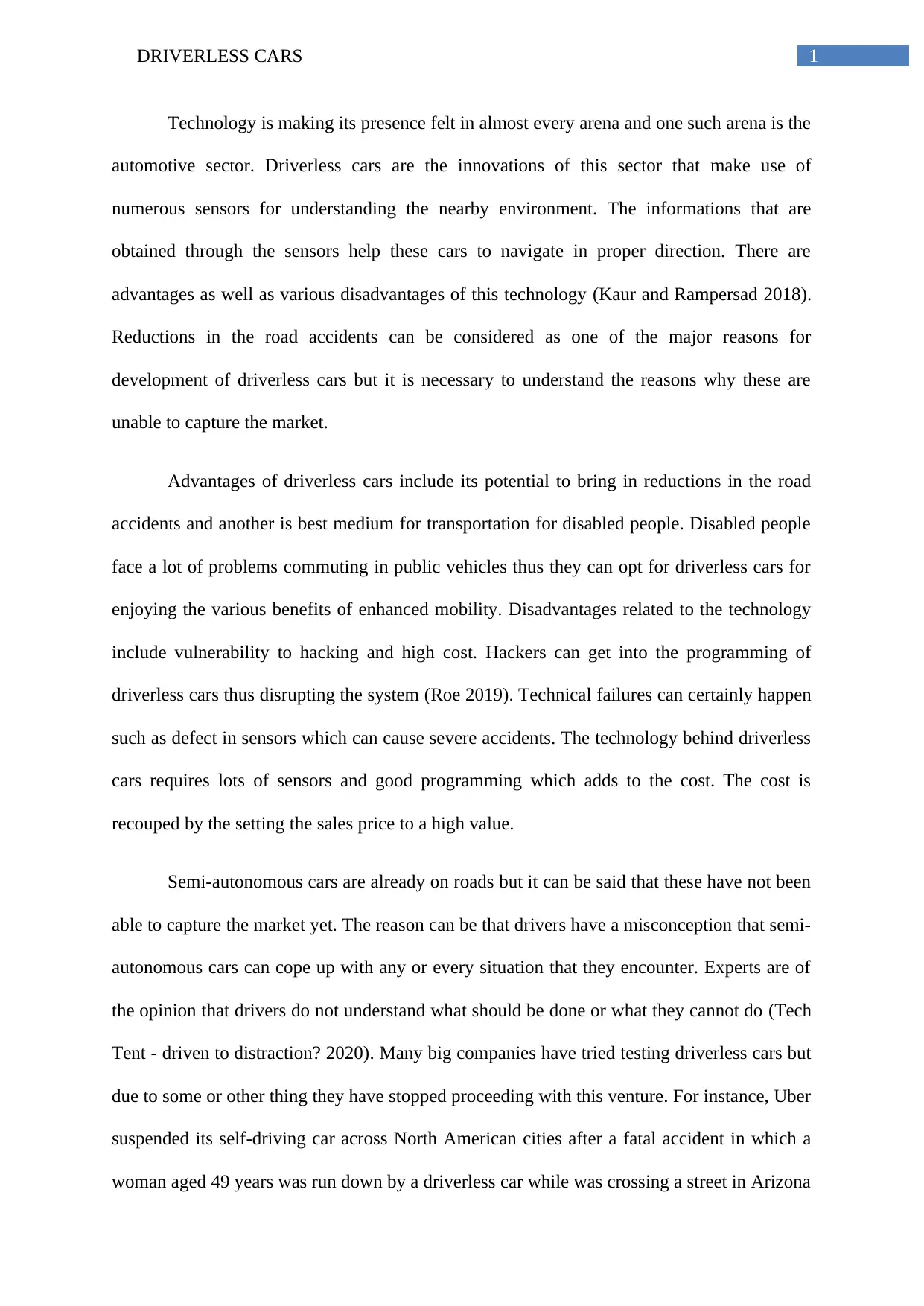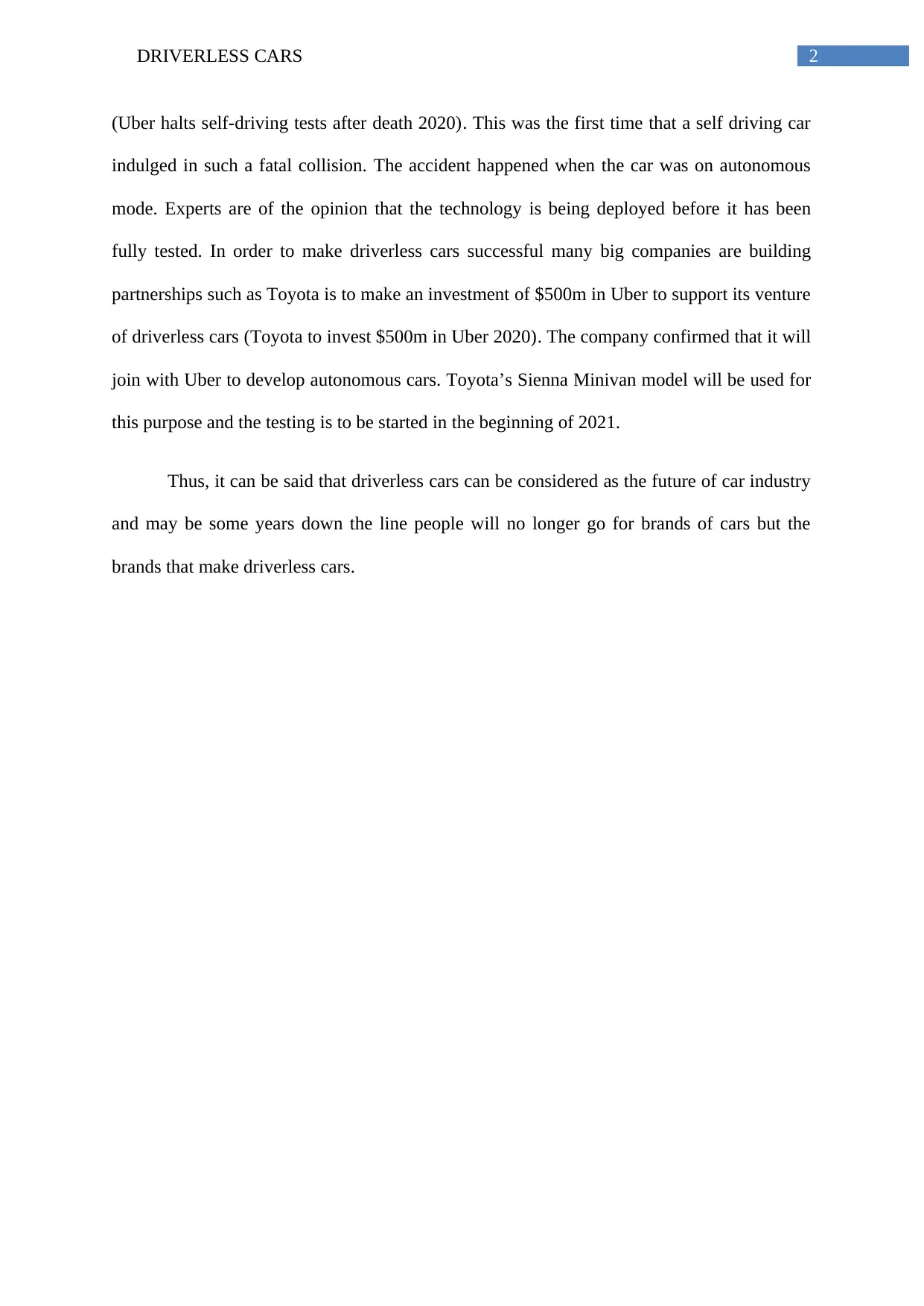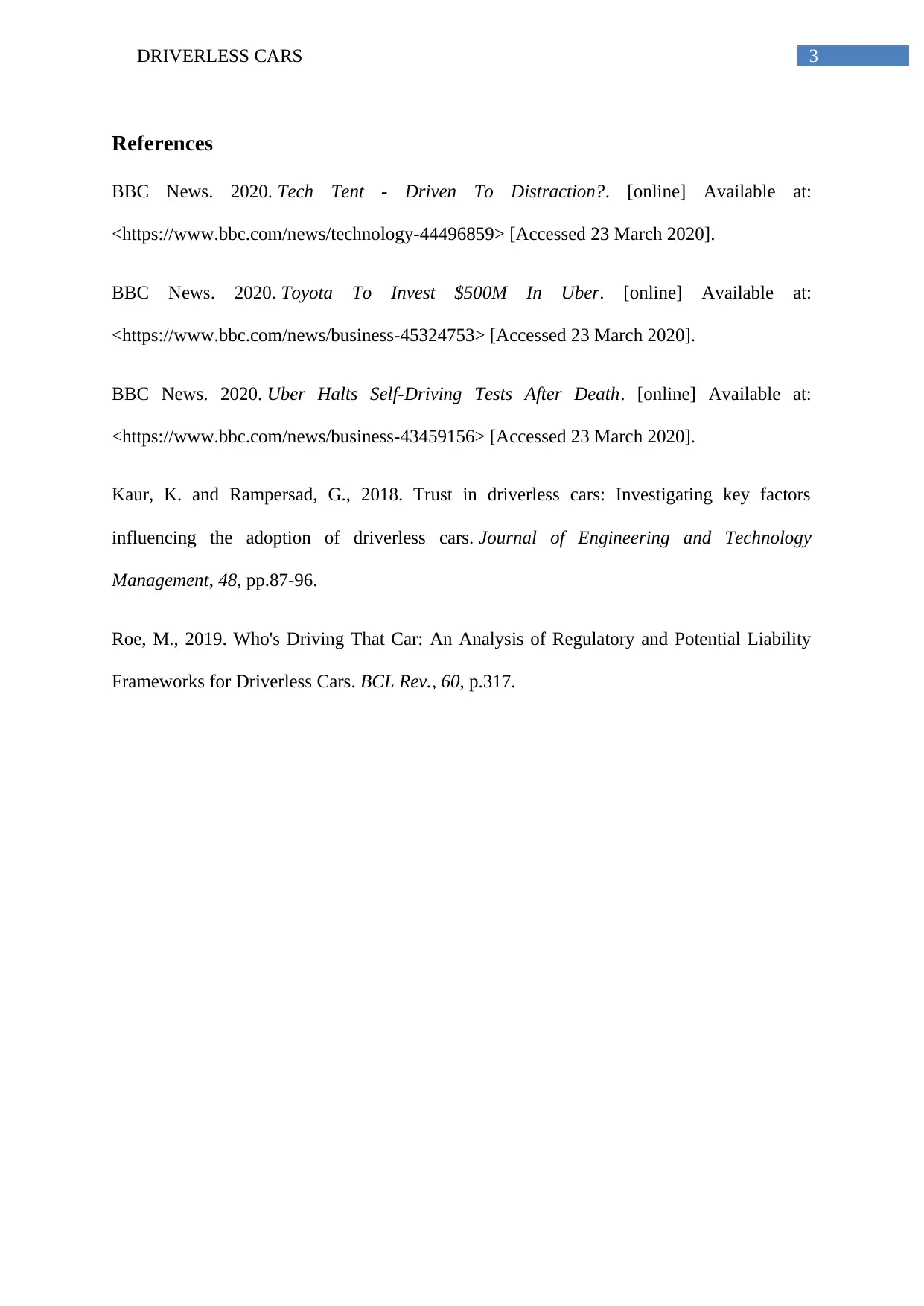Driverless Cars: Technology, Challenges, and Market Adoption Analysis
VerifiedAdded on 2022/08/28
|4
|742
|71
Report
AI Summary
This report provides an overview of driverless car technology, exploring its advantages such as potential reductions in road accidents and enhanced mobility for disabled individuals. It also addresses the disadvantages, including vulnerability to hacking, high costs, and potential technical failures. The report examines the current state of the market, noting the challenges in market adoption and the impact of accidents involving autonomous vehicles. It highlights the involvement of major companies like Uber and Toyota in the development and testing of driverless cars, emphasizing the importance of partnerships and technological advancements. The report concludes that driverless cars represent the future of the automotive industry, with potential for significant changes in how people perceive and purchase vehicles.
1 out of 4











![[object Object]](/_next/static/media/star-bottom.7253800d.svg)